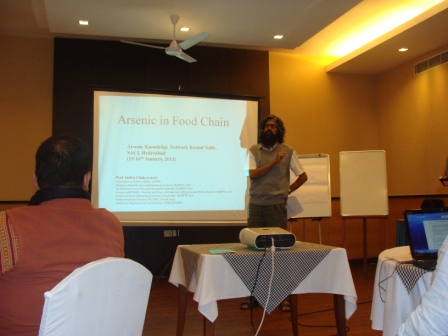
Project Summary
About 13 million people across 8 states in India are estimated to be affected by arsenic contamination in drinking water. Despite three decades of substantial mitigation efforts, absence of public forums for knowledge sharing and lack of scalable field pilots have remained deterrents. This deep-rooted and trans-disciplinary developmental problem requires a long-term, multi-pronged strategy for successful mitigation.
Addressing the root-causes of the contamination issue, a knowledge and action network coupled with action research projects have been conceptualized for arsenic. Existing communities of practice on arsenic will be tapped to build the network that will widen its reach to include larger audiences. The network is aimed at identifying and resolving research and implementation gaps in arsenic through knowledge sharing, small-scale research and innovations at the field level. Broad frameworks will be constructed for mitigating arsenicosis and tested at the field level, supported by development of scalable models to aid their mainstreaming.
The network will be centrally anchored by a Secretariat and surrounded by a core executive committee which will consist of subject experts and others relevant to the topic. They will be supported by a governing body to provide strategic guidance to the network and aid decision making. The network will be further aided and propelled by an expanded constituency of engaged audiences and groups such as NGOs, research institutions, donors, media, industry and common citizens. Being the first-of-its-kind, the network architecture will be flexible and open to improvisation.
Outputs
- A “white paper” on arsenic and the status of arsenicosis mitigation in India.
- Support research and innovation on arsenic.
- Support implementation of arsenicosis mitigation programs of the state governments or other donors.
- Convene and organise an annual conference on arsenic and arsenicosis.
- Develop communication packages (brochures, leaflets, project briefs, case studies, videos etc.), training materials for mass circulation and capacity building of different interest groups.
- Facilitate advocacy efforts targeted at various levels of governance, media and citizenry.






 SaciWATERS
SaciWATERS